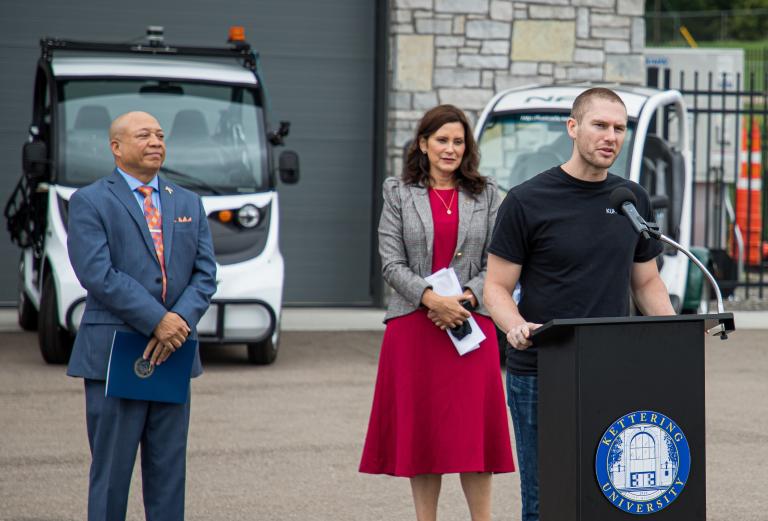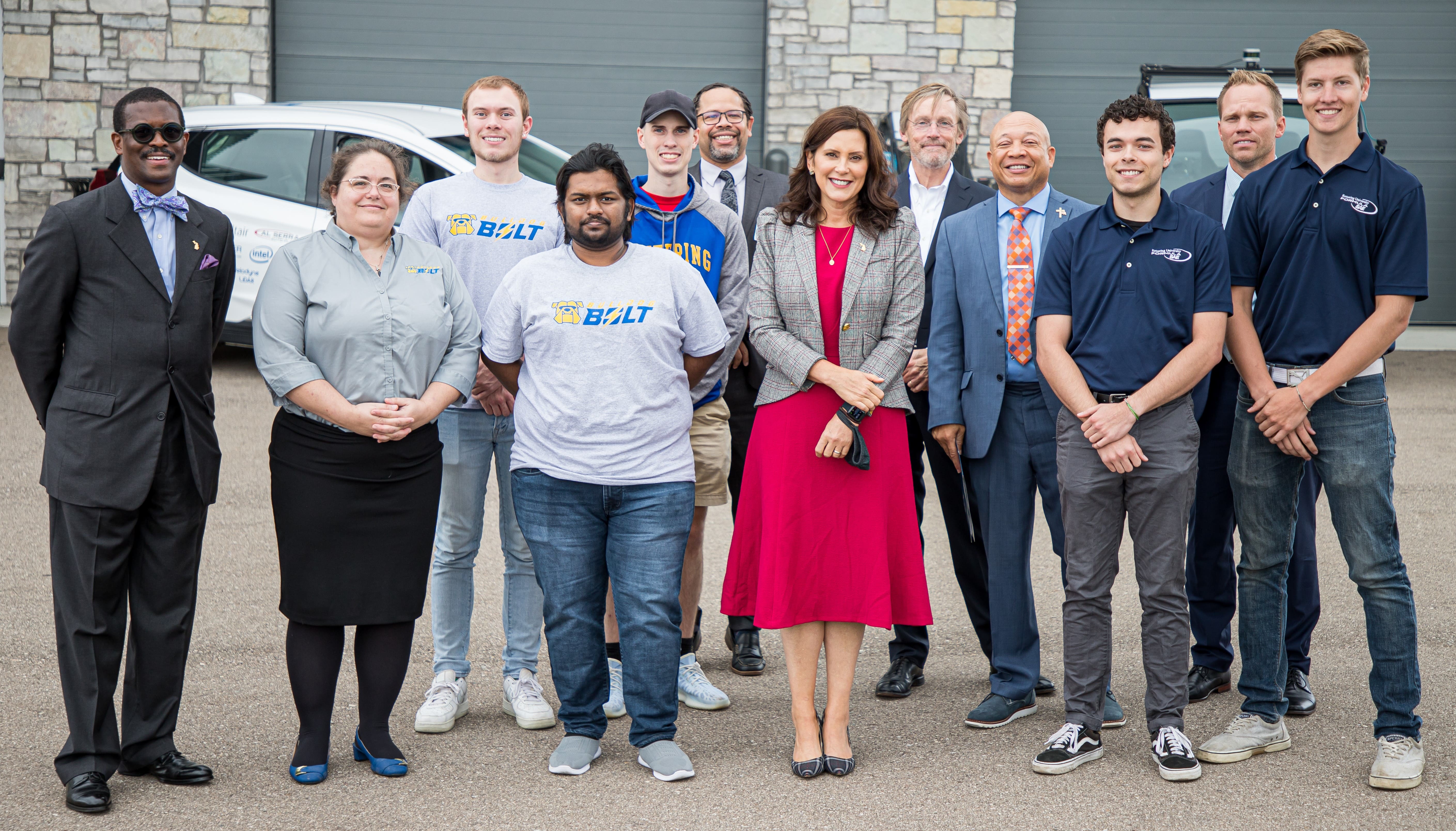
KUHMUTE Co-founder Peter Deppe ('19, EE) speaks about receiving a mobility grant from the state of Michigan at an event Wednesday at the GM Mobility Research Center. Flint Mayor Sheldon Neeley and Gov. Gretchen Whitmer are behind him.
“Kettering University is proud of what we have done, are doing and will continue doing in the future at the forefront of automated mobility.”
Kettering alumnus Peter Deppe’s company, KUHMUTE, was one of five in the state to receive a new mobility grant as announced Wednesday by Michigan Governor Gretchen Whitmer along with local and state representatives at the University's GM Mobility Research Center (MRC).
Michigan Mobility Funding Platform grants were launched The Office of Future Mobility and Electrification, in partnership with the Michigan Economic Development Corporation and Michigan Department of Transportation to accelerate investment in mobility and electrification and support high potential mobility and electrification companies who anticipate long-term growth in Michigan. The first round of grants total $444,000.
“These grants are securing a foundation for mobility companies across the state that builds on our reputation as a global leader in testing and deployment of future mobility solutions, but also create a runway to future growth and jobs right here in Michigan,” Whitmer said.
Kettering University President Dr. Robert K. McMahan, who welcomed guests including Flint Mayor Sheldon Neeley, Michigan Chief Mobility Officer Trevor Pawl and Kettering students from the AutoDrive Team and Formula SAE, said MRC was a fitting place for the Governor’s announcement.
“This facility and this University represent one of Michigan’s truly unique and most successful higher educational institutions embracing our history to define our path forward — one focused on ensuring the success of its students in emerging technologies,” he said. “… Kettering University is proud of what we have done, are doing and will continue doing in the future at the forefront of automated mobility.”
Deepe (’19, EE) co-founded KUHMUTE in 2018 with fellow Kettering student Scott Spitler. Money from KUHMUTE’s $89,005 grant will be used in partnership with the city of Flint, the Flint Downtown Development Authority and Helbiz to install multimodal charging hubs throughout Flint to help residents find sustainable transportation on their first- and last-mile journeys between public transit and local businesses. The charging stations work with anything smaller than a car.
“A charging network that is agnostic to electric scooters, electric bikes, wheelchairs, delivery robots and more enables communities to choose the mode of transportation that is most convenient for their trip and abilities,” Deepe said. “Providing choices is a powerful way to increase the adoption of the most sustainable forms of mobility, and our team is excited to play a role in this.”
To read the full news release about the grants and Wednesday’s presentation, click here.
